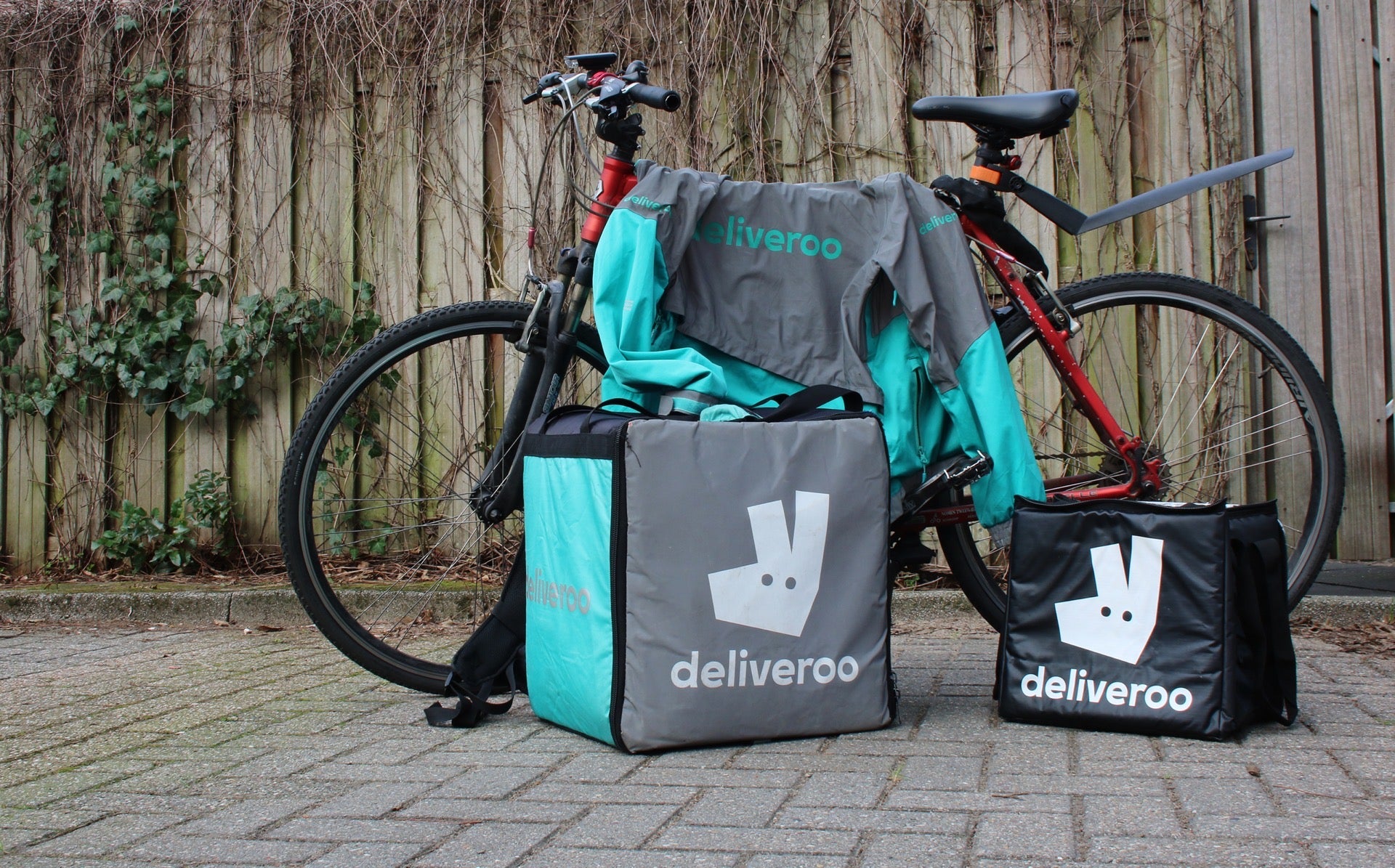
Deliveroo’s highly anticipated debut on the London Stock Exchange has turned out to be a major flop, with market analysts and experts branding the float as rushed and embarrassing. The listing sliced off over a quarter of the returns the company had hoped for.
The UK food-delivery unicorn first announced its intention to make an initial public offering (IPO) in the Big Smoke earlier in March, expecting to be valued at £8.8bn in the process. The float was to be the biggest public debut in years. Chancellor of the Exchequer Rishi Sunak was one of the many people who welcomed the move, celebrating it as a testament to the nation’s ability to nurture tech startups.
Then things started to go wrong. First, several of the UK’s top investors said that Deliveroo’s gig economy-based business model was of great concern to them, which meant that they wouldn’t invest in the business at the IPO. There were also those who were put off by the unusual share structure of the float, which retained greater control in the hands of founder Will Shu. Following these reports Deliveroo cut back its expectations, hoping instead to get a valuation between £7.6bn and £7.85bn.
When the London-based tech unicorn went public on Wednesday morning, it was at an asking price of £3.90 per share for the 384,615,384 shares on offer. The price quickly tumbled, falling as low as £2.7 at one point. At the close of the trading day, it traded just north of £2.87 per share, representing a 26.4% drop from the initial asking price.
“[This] is undoubtedly a flop by anyone’s standards,” said David Morrsion, senior market analyst at trading platform Trade Nation. “It’s also a big embarrassment for the London Stock Exchange which was looking forward to its biggest IPO in nearly 10 years, and UK chancellor of the Exchequer Rishi Sunak who dubbed it a successful British tech story and a harbinger of more big tech IPOs to come.
“Of course, you can’t judge a company by its first few hours of trading. After all, Facebook had a disastrous launch and a torrid few months after that. But if an investor can go into the market after a couple of hours and purchase shares 30% cheaper than the IPO price target, then something has gone wrong.”
How well do you really know your competitors?
Access the most comprehensive Company Profiles on the market, powered by GlobalData. Save hours of research. Gain competitive edge.

Thank you!
Your download email will arrive shortly
Not ready to buy yet? Download a free sample
We are confident about the unique quality of our Company Profiles. However, we want you to make the most beneficial decision for your business, so we offer a free sample that you can download by submitting the below form
By GlobalDataManish Madhvani, co-founder and managing partner at tech investment firm GP Bullhound agreed that the “initial figures for Deliveroo are a bit of a setback”, but maintained that “the company is still highly valued – the pricing was set against its peers, and companies like Glovo and Just Eat are growing much faster.”
“There may have been a mistake on the pricing given the market conditions, but we shouldn’t forget how truly pioneering the Deliveroo model is, rather than getting bogged down in the headlines,” Madhvani added.
Sohail Malik, portfolio manager at investment management firm Roxbury Asset Management, branded the floatation as “rushed.”
“Riding high on the back of just two positive EBITDA quarters and an explosion of gross transaction value in 2021 we arrive at their going public day. All a bit too rushed,” Malik said.
Several factors contributed to Deliveroo’s flotation flop, with the company’s reliance on gig economy workers being chief among them. Several of the UK’s biggest investors – including Legal & General, Aviva, Aberdeen Standard and M&G – said last week that they wouldn’t invest in the startup because of its dependence on gig economy riders.
At the time, Andrew Millington, head of UK Equities at Aberdeen Standard, told the BBC that “we wouldn’t be comfortable that the way in which [Deliveroo’s] workforce is employed is sustainable.”
Millington was referring to the ongoing backlash against the way gig economy businesses like Uber and Deliveroo classify their couriers as self-employed contractors rather than company employees, meaning the riders aren’t entitled to benefits like paid holidays and the minimum wage.
A recent thematic research report from GlobalData noted that several regulators and lawmakers around the world are beginning to move against such employment practices, a fact which would certainly cause disquiet for investors in gig-economy companies.
A significant development occurred earlier this year when Uber lost a Supreme Court case in the UK, which ruled that some of its drivers should be categorised as workers. Following the ruling, Uber made a U-turn on its previous stance and announced that all its UK minicab drivers would be categorised as employees from now on. It did not extend that announcement to Uber Eats riders. Deliveroo has made no such concessions.
“The UK Supreme Court ruling represents a watershed moment for employment relationship in the gig economy, to the extent that we can say it marks a new phase of it,” Laura Petrone, senior analyst at GlobalData, told Verdict. “In this new phase, investors will be increasingly concerned over workers’ basic rights and potential regulatory risks as governments around the world begin to regulate this business model. Companies including Deliveroo already face legal challenges in countries like Italy and Spain and the European Commission has recently launched a consultation on regulating the industry.”
Quite apart from worries over the impact of future regulation on a firm’s performance, investors also have their own corporate image and ethics to consider.
“Investors are not just looking at the books when deciding where to put their money,” Lil Read, graduate analyst at GlobalData, told Verdict. “Environmental, social, and governance issues (ESG) are of primary concern.
“Impressive revenues alone are no longer enough for investors. They also demand sound ethics and good governance.”
Another reason for the Deliveroo IPO fiasco could also be because it opted to go public with a dual-share structure, designed to provide its CEO with a stronger say over the company’s future. Dual-class structures involve two different classes of shares, with one class offered to the public and one with considerably larger voting powers given to the company leadership.
Malik argued that the combination of Deliveroo’s reliance on its gig economy model and its dual-class listing undermined its claim to have good corporate governance.
“The dual-class structure and the voting power Shu commands as CEO reek of governance fail,” Malik said.
Or, as Anthony Miller, co-founder and managing partner at analyst firm Tech Market View, put it: “I suspect early investors in Deliveroo were just waiting for the moment they could take the money and run!”
Malik concluded: “With the shares hovering just under 300p any near term bounce will come when retail investors start dipping in their toes. The next two quarters will be key in terms of where the shares end up settling but ultimately as long as Deliveroo remains largely viable a strategic merger down the line is probably inevitable.”





